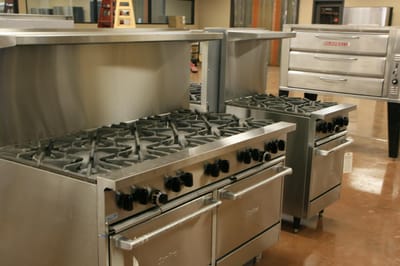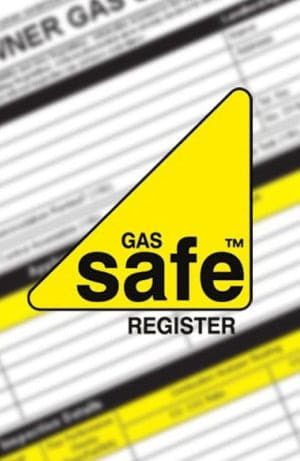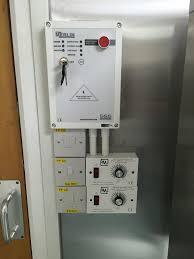COMMERCIAL KITCHENS
COMPLIANCE - MAINTENANCE - INSTALLATION
LPG & NATURAL GAS CATERING APPLIANCE REPAIRS IN WARRINGTON
Need dependable and affordable repair services for your commercial gas catering appliances? Tier-1 Commercial Gas Engineers has you covered! Our team of skilled engineers is dedicated to keeping your kitchen running smoothly with fast, efficient repairs for all types of commercial gas appliances.
From malfunctioning ovens and broken grills to faulty fryers, our expert technicians have the experience and skills to quickly restore your equipment to full operation. We understand the impact of downtime on your business, so we provide prompt and reliable repairs to minimize disruption to your daily operations.
Our services include routine maintenance, preventative repairs, and emergency breakdown assistance, with 24/7 availability to ensure support when you need it most. We use only top-quality parts and materials, and our team is fully trained and qualified to work on all commercial gas catering appliances.
In addition to repairs, we also offer installation services for new equipment, complete with thorough testing and certification to ensure safety and compliance with current regulations. With competitive pricing and transparent quotes, Tier-1 offers unmatched value and service.
If you’re in need of commercial gas catering appliance repairs, contact our team today. We’re ready to keep your kitchen running smoothly with reliable, cost-effective service you can trust. Reach out now to schedule a repair or request a quote!

cp42 gas saftey certification
A CP42 gas safety certificate is a document that confirms that gas pipework in commercial kitchens and catering establishments complies with the requirements set out in the Gas Safety (Installation and Use) Regulations 1998. This certificate is required by law in the UK and is an important document for any catering business that uses gas appliances.
The CP42 gas safety certificate is issued by a Gas Safe registered engineer who has inspected and tested the gas pipework in a commercial kitchen. The certificate will include information about the location of the pipework, the date of the inspection, and any defects or issues that were identified during the inspection. It will also confirm that the pipework complies with the relevant safety standards.
One of the main reasons why a CP42 gas safety certificate is important is that it helps to ensure the safety of employees and customers. Gas leaks can be extremely dangerous, and a poorly maintained or faulty gas pipework system can lead to gas leaks and potentially fatal accidents. By having a CP42 gas safety certificate, a catering business can demonstrate that it takes its responsibilities for gas safety seriously, and that it has taken steps to ensure that its premises are safe.
Another reason why a CP42 gas safety certificate is important is that it is a legal requirement. Under the Gas Safety (Installation and Use) Regulations 1998, it is the responsibility of the owner or operator of a commercial kitchen to ensure that gas appliances and pipework are maintained and inspected regularly. Failure to comply with these regulations can result in fines or legal action, so having a CP42 gas safety certificate is essential for complying with the law.
Finally, a CP42 gas safety certificate is important for insurance purposes. Most insurance companies require evidence that a commercial kitchen has a valid gas safety certificate before they will provide cover. Without this certificate, a catering business may find that it is not covered in the event of an accident or incident involving gas.
In summary, a CP42 gas safety certificate is an important document for any catering business that uses gas appliances. It helps to ensure the safety of employees and customers, is a legal requirement, and is often necessary for insurance purposes. By obtaining a CP42 gas safety certificate, a catering business can demonstrate that it takes gas safety seriously and is committed to providing a safe working environment for its employees and customers.

gas saftey interlocking systems
A gas interlock system is an important safety device that is designed to protect individuals and property from the dangers associated with gas leaks. In the catering industry in the UK, gas interlock systems are essential to ensure the safety of employees, customers, and property.
The primary function of a gas interlock system is to ensure that gas appliances are shut off in the event of a gas leak or other safety hazard. The system is designed to monitor the gas supply to the appliances and automatically shut off the gas if a fault or problem is detected. This prevents the buildup of gas, which can lead to explosions, fires, or carbon monoxide poisoning.
Gas interlock systems are particularly important in the catering industry, where gas appliances such as ovens, fryers, and grills are commonly used. These appliances are often used at high temperatures and for extended periods, making them more prone to leaks or malfunctions. Without a gas interlock system, a gas leak could go undetected, leading to a potentially catastrophic situation.
In addition to protecting against gas leaks, gas interlock systems are also important in complying with regulations and ensuring the safety of employees and customers. The Health and Safety at Work Act (1974) requires employers to provide a safe working environment for their employees, and the Gas Safety (Installation and Use) Regulations (1998) require gas appliances to be properly maintained and monitored. Failure to comply with these regulations can result in fines or legal action.
Overall, gas interlock systems are an essential safety feature in the catering industry in the UK. They protect against the dangers of gas leaks and ensure compliance with regulations, making them a crucial investment for any catering business.

WARM AIR HEATERS / RADIANT TUBE HEATERS REPAIR
Warm air heaters / radiant tube heaters - Repairs, maintenance, servicing, gas safety certification.
COMMERCIAL BOILER REPAIRS
Call out to a breakdown? We have you covered!
COMMERCIAL & CATERING GAS SAFTEY CERTIFICATION
Gas safety certification for all gas appliances. LPG and Natural gas.
CATERING EQUIPMENT REPAIR
Catering equipment, grills, fryers, ovens - Repairs, maintenance, servicing, gas safety certification.
GAS INTERLOCK SYSTEMS
Installation and servicing.
Contact
- Gemini Business Park, Westbrook, Warrington, UK
- +44-01925 980564
- info@tier1-gas.co.uk
- Mon-Fri - 08:00-19:00